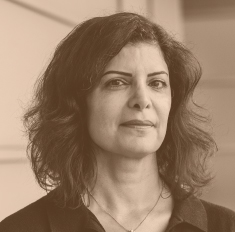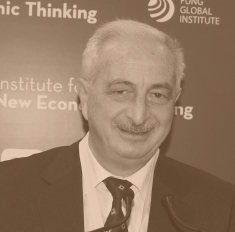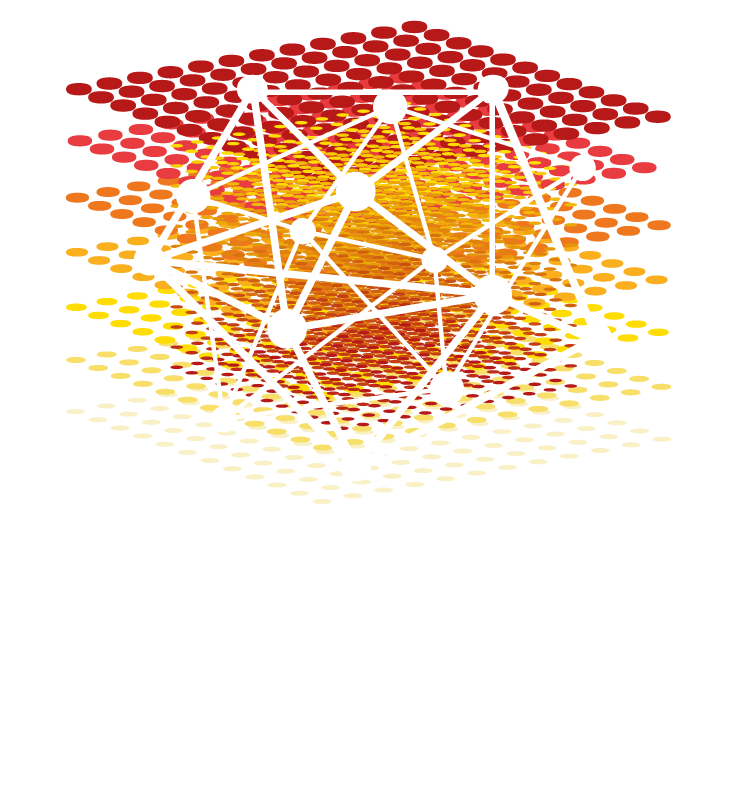
Federico BATTISTON - Central European University, Austria

Tina ELIASSI-RAD - Northeastern University, USA

Frank EMMERT-STREIB - Tampere University, Finland

Filippo MENCZER - Indiana University, USA

Luciano PIETRONERO - University of Rome “Sapienza”, Italy
The complexity of many biological, social and technological systems stems from the richness of the interactions among their units. Over the past decades, a variety of complex systems has been successfully described as networks whose interacting pairs of nodes are connected by links. Yet, from human communications to ecological systems, interactions can often occur in groups of three or more nodes and cannot be described simply in terms of dyads. Until recently little attention has been devoted to the higher-order architecture of real complex systems. However, a mounting body of evidence is showing that taking the higher-order structure of these systems into account can enhance our modeling capacities and help us better understand and predict their collective behavior. Here I will present an overview of network science beyond pairwise interactions, describe the higher-order organization of a variety of real-world complex networks at different scales, and discuss emergent phenomena characterizing dynamical processes when extended beyond pairwise interactions.
Biography
Federico Battiston, an Associate Professor in Network Science, brings a wealth of experience from esteemed institutions like CEU, University College London, and the Brain & Spine Institute in Paris. Holding a PhD from Queen Mary University of London, his expertise spans statistical physics, complexity science, and social networks. As Chair of NetSci2023, he oversees the premier conference in network science, demonstrating his leadership in the field. Federico's research, published in prestigious journals like Nature Physics and Science Advances, delves into diverse topics, from sustainable urban systems to the human brain. Recognized with awards such as the Junior Award of the Complex Systems Society and the Early Career Prize in Statistical and Nonlinear Physics of the European Physical Society, Federico continues to advance our understanding of complex systems and network dynamics, mentoring a new generation of researchers.
Federico Battiston, an Associate Professor in Network Science, brings a wealth of experience from esteemed institutions like CEU, University College London, and the Brain & Spine Institute in Paris. Holding a PhD from Queen Mary University of London, his expertise spans statistical physics, complexity science, and social networks. As Chair of NetSci2023, he oversees the premier conference in network science, demonstrating his leadership in the field. Federico's research, published in prestigious journals like Nature Physics and Science Advances, delves into diverse topics, from sustainable urban systems to the human brain. Recognized with awards such as the Junior Award of the Complex Systems Society and the Early Career Prize in Statistical and Nonlinear Physics of the European Physical Society, Federico continues to advance our understanding of complex systems and network dynamics, mentoring a new generation of researchers.
As the use of machine learning (ML) algorithms in network science increases, so do the problems related to explainability, transparency, fairness, privacy, and robustness, to name a few. In this talk, I will give a brief overview of the field of trustworthy network science and present recent work from my lab on the (in)stability of graph representation learning.
Biography
Tina Eliassi-Rad is the inaugural President Joseph E. Aoun Professor at Northeastern University. She is also an external faculty member at the Santa Fe Institute and the Vermont Complex Systems Center. Tina works at the intersection of artificial intelligence and network science and is interested in the impact of science and technology on society. For a more extended bio, visit http://eliassi.org/bio.html.
Tina Eliassi-Rad is the inaugural President Joseph E. Aoun Professor at Northeastern University. She is also an external faculty member at the Santa Fe Institute and the Vermont Complex Systems Center. Tina works at the intersection of artificial intelligence and network science and is interested in the impact of science and technology on society. For a more extended bio, visit http://eliassi.org/bio.html .
Digital twins provide a new and exciting framework that has recently attracted much attention across scientific fields. The basic idea of a digital twin is to combine simulation and learning to create a virtual model of a physical object. In this presentation, we discuss the generalization of the concept behind digital twins into an overarching field. From a theoretical perspective, this is achieved by recognizing that the duality of a digital twin fundamentally connects to complexity science and data science leading to the emergence of complexity data science as the amalgamation of both. We explore the broader implications of this field, its historical roots, challenges and opportunities.
Biography
Frank Emmert-Streib, a distinguished Professor of Data Science at Tampere University, leads the Predictive Society and Data Analytics Lab, focusing on interdisciplinary research in data science. Formerly a Senior Lecturer at Queen's University Belfast, his expertise spans biostatistics, computational biology, and theoretical physics. Frank received training as a Senior Fellow at the University of Washington and was a Postdoctoral Research Associate at the Stowers Institute for Medical Research. With a Ph.D. in Theoretical Physics from the University of Bremen, he has significantly contributed to computational and statistical methods, particularly in addressing uncertainty and explainability in data analysis. Frank's extensive experience includes sabbaticals at prestigious institutions like Harvard School of Public Health and the University of Cambridge. As a co-founder and former CSO of sAnalytiCO Ltd, he has demonstrated leadership in academia and industry, shaping the future of data technology. He plays an active role in academic publishing as an editor and associate editor for prestigious scientific journals.
Frank Emmert-Streib, a distinguished Professor of Data Science at Tampere University, leads the Predictive Society and Data Analytics Lab, focusing on interdisciplinary research in data science. Formerly a Senior Lecturer at Queen's University Belfast, his expertise spans biostatistics, computational biology, and theoretical physics. Frank received training as a Senior Fellow at the University of Washington and was a Postdoctoral Research Associate at the Stowers Institute for Medical Research. With a Ph.D. in Theoretical Physics from the University of Bremen, he has significantly contributed to computational and statistical methods, particularly in addressing uncertainty and explainability in data analysis. Frank's extensive experience includes sabbaticals at prestigious institutions like Harvard School of Public Health and the University of Cambridge. As a co-founder and former CSO of sAnalytiCO Ltd, he has demonstrated leadership in academia and industry, shaping the future of data technology. He plays an active role in academic publishing as an editor and associate editor for prestigious scientific journals.
Disinformation can be very harmful. AI provides us with tools to mitigate these harms, such as methods to detect inauthenticaccounts and coordinated information operations. Large language models (LLMs) can also help rate the reliability of information sources and aid in fact-checking tasks. However, attempts to scale up these AI-supported interventions must account for unintended consequences when people interact with AI. In some cases, fact-checking information generated by an LLM can actually decrease news discernment. In the hands of bad actors, AI can become a dangerous weapon. Aside from much-discussed deepfakes, generative AI can be used to easily and cheaply create fake but credible profiles and content at scale. These capabilities enable the infiltration and manipulation of vulnerable online networks. Given the near-impossibility of detectingAI-generated content, research is needed to develop new ways of challenging the provenance of content before wide exposure through distribution channels like social media and search engines.
Biography
Filippo Menczer is the Luddy distinguished professor of informatics and computer science and the director of the Observatory on Social Media at Indiana University. He holds a Laurea in Physics from the Sapienza University of Rome and a Ph.D. in Computer Science and Cognitive Science from the University of California, San Diego. His research interests span Web and data science, computational social science, science of science, and modeling of complex information networks. Dr. Menczer was named a Fellow of the ACM for his research on the vulnerability of social media networks to disinformation and manipulation.
Filippo Menczer is the Luddy distinguished professor of informatics and computer science and the director of the Observatory on Social Media at Indiana University. He holds a Laurea in Physics from the Sapienza University of Rome and a Ph.D. in Computer Science and Cognitive Science from the University of California, San Diego. His research interests span Web and data science, computational social science, science of science, and modeling of complex information networks. Dr. Menczer was named a Fellow of the ACM for his research on the vulnerability of social media networks to disinformation and manipulation.
Economic Fitness and Complexity (EFC) is the recent economic discipline and methodology that uses and develops the modern techniques of data analysis to build economic models based on a scientific methodology inspired by the science of Complex Systems. It consists of a data-based and bottom-up approach that considers specific and concrete problems without economic ideologies, and it acquires information from the previous growth data of all countries with methods of Complex Networks, Algorithms, and Machine Learning. For a few years, the IFC-World Bank Group has used it to define specific economic actions tuned for countries, particularly for developing ones. One of the main targets is to identify the products or technologies that will enable the opening of new markets, considering each country's specific situation. The IFC-WB has also supported the development of these methodologies, which are now officially adopted for planning its interventions. In this lecture, we present an overview of the field and the challenge of extending these methods, which have been developed up to now primarily for countries, to analyze individual companies.
Biography
Luciano Pietronero graduated in Physics in 1971 in Rome. After several experiences abroad in the corporate research sector (Xerox Research Center Webster in New York and Brown Boveri Research Center in Switzerland), he was a full professor of Condensed Matter Physics at the University of Groningen in the Netherlands and then at the University of Rome “Sapienza”. In 2004, he founded the Institute of Complex Systems (ISC) of the CNR. In 2007, he was the president of the 23rd edition of the STATPHYS conference, and in 2008, he won the Enrico Fermi prize, the most important of the Italian Physics Society. Author or co-author of more than 400 scientific publications; in 1987, he introduced the concept of fractal cosmology and in 2012, the Economic Fitness and Complexity model. Mentor of a generation of young scientists in the fields of complex systems, statistical mechanics and superconductivity at high temperatures, since 2019, he has been President of the Enrico Fermi Historical Museum of Physics and Study and Research Centre.
Luciano Pietronero graduated in Physics in 1971 in Rome. After several experiences abroad in the corporate research sector (Xerox Research Center Webster in New York and Brown Boveri Research Center in Switzerland), he was a full professor of Condensed Matter Physics at the University of Groningen in the Netherlands and then at the University of Rome “Sapienza”. In 2004, he founded the Institute of Complex Systems (ISC) of the CNR. In 2007, he was the president of the 23rd edition of the STATPHYS conference, and in 2008, he won the Enrico Fermi prize, the most important of the Italian Physics Society. Author or co-author of more than 400 scientific publications; in 1987, he introduced the concept of fractal cosmology and in 2012, the Economic Fitness and Complexity model. Mentor of a generation of young scientists in the fields of complex systems, statistical mechanics and superconductivity at high temperatures, since 2019, he has been President of the Enrico Fermi Historical Museum of Physics and Study and Research Centre.
